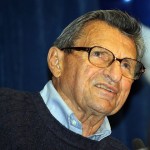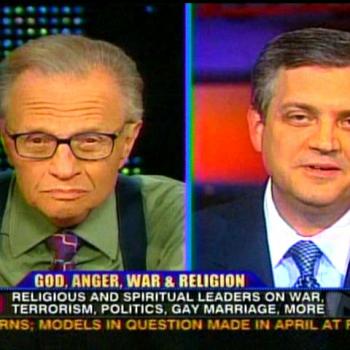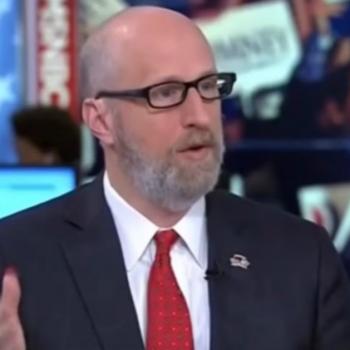Don’t let all that prejudice against Donald Trump get in the way of understanding an important debate about U.S. foreign policy before the nation became “great.” Michael Brendan Dougherty explains:
America First was a young, politically diverse, and surprisingly well-lettered movement that wanted to keep America neutral (like Switzerland or Ireland) as Europe descended into World War II. Though it started on the East Coast, it was concentrated in the Midwest and had over two million members nationwide. It counted major American political figures, Democrat and Republican, in its ranks, as well as many men of letters.
You probably remember the Clinton years. The America Firsters remembered World War I. Members of the AFC over 30 would recall that the last European bloodbath had some deforming effects on liberty at home. These included America’s experiments in mass wartime censorship, stirred up-hatred of German-Americans, and the legal suppression of the German language that was used commonly in the Midwest and Great Plains. The governor of Iowa told reporters, “There is no use in anyone wasting his time praying in other languages than English. God is listening only to the English tongue.”
America Firsters also remembered British intelligence planting false and insane stories in the American press during World War I, accusing the German army of marching with Belgian babies impaled on their bayonets. They remembered that Woodrow Wilson’s government had employed a small army of government-licensed demagogues, the Four Minute Men, who got their speeches from the proto-fascist Committee on Public Information. They also recalled that the peace imposed at Versailles had been vengeful and its reparation schemes so entangled that they contributed to a global economic depression just a few years earlier. Naturally, some of them wanted to restore America’s foreign policy of maintaining the Monroe Doctrine in our hemisphere and not intervening in others.
The modern charge against America First is that it was made up of people obsessed with Jews. In her denunciation at CNN, Susan Dunn says that Charles Lindbergh, a famous pilot, anti-Semite, and popular AFC speaker, “put American Jews on notice that America’s ‘tolerance’ for them rested upon a fragile foundation.'” McManus says that Lindbergh’s “followers included more than a few pro-Nazis and anti-Semites.”
This has been rebuffed by historians Wayne S. Cole and Justus Doenecke. The AFC, understanding that it was in tension with the Anglophile elite on the East Coast, tried to police anti-Semitism in its ranks. General Robert Wood, a distinguished veteran of America’s war in the Philippines and the First World War, told the followers of the openly anti-Semitic radio priest Father Coughlin, “We don’t want you people.” The powerful industrialist Henry Ford was ejected from the board of America First for his anti-Semitic views. And when Lindbergh included, for the first time, anti-Semitic lines in his infamous Des Moines speech, he was drowned out by boos and catcalls. The AFC had Jewish staffers like James Lipsig and Sidney Hertzberg. All in all, the America First Committee put considerably more effort in removing the anti-Semites from its ranks than the Roosevelt administration did in ejecting Stalin’s agents from its own.
The Roosevelt White House’s case against America First is barely repeatable in polite circles today. Roosevelt aide Harold Ickes was smearing America First as Nazi sympathizers and Japanese lovers. Whatever the imagined dangers of Lindberg’s Des Moines speech, it was the war effort — not the pacifists and beatniks — that revealed the “fragile foundation” of America’s tolerance. Roosevelt set up 10 interment camps to hold 110,000 Japanese-Americans. No trials, no charges. Just internment based on ethnicity.
For those who think that political conservatives are people who listen to Rush Limbaugh and watch Fox News, Dougherty represents a different brand of conservatism, one that has been ambivalent about U.S. foreign policy for a long time and one that distinguishes patriotism from support for the U.S. military. For those conservatives, America is great when it minds its own business and lives contentedly with the footprint of a modest republic. For evangelicals who want a nation as great as their God, that version of America is shabby and uninspired. But if you can live with churches that aren’t flashy — as if — why not a nation of similar proportions?












